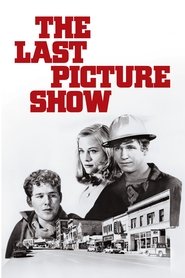It's curious that a film in which films are ostensibly important [has] little to say, or is at the very least pessimistic, about the social role of movies [—] in The Last Picture Show, the movies are no better a distraction than a game of pool, and both turn out to merely provide pretexts for sex. […] He may have delighted in westerns, screwball comedies and period pieces, but Peter Bogdonavich was no nostalgic: his best work always had cracks in its rear-view mirror.
— Argjun Sajip (Sight and Sound, 2023)
Jean Baudrillard has a memorable description of walking in to see Peter Bogdanovich’s 1971 black-and-white film The Last Picture Show and, for a moment, thinking it was actually a movie from the period it depicted: the early ’50s. It was a hyper-real version of it. That’s what Happy Days was[, too].
— J. Hoberman (Slant Magazine)
Synopsis: High school seniors and best friends, Sonny and Duane, live in a dying Texas town. The handsome Duane is dating a local beauty, while Sonny is having an affair with the coach's wife. As graduation nears and both boys contemplate their futures, Duane eyes the army and Sonny takes over a local business. Each struggles to figure out if he can escape this dead-end town and build a better life somewhere else.

